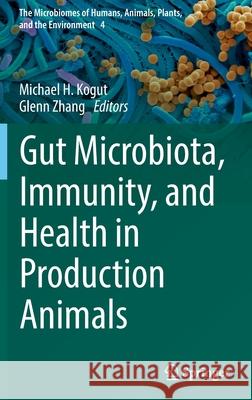Gut Microbiota, Immunity, and Health in Production Animals » książka
topmenu
Gut Microbiota, Immunity, and Health in Production Animals
ISBN-13: 9783030903022 / Angielski / Twarda / 2022 / 336 str.
Kategorie BISAC:
Wydawca:
Springer
Język:
Angielski
ISBN-13:
9783030903022
Rok wydania:
2022
Ilość stron:
336
Waga:
0.64 kg
Wymiary:
23.39 x 15.6 x 1.91
Oprawa:
Twarda
Wolumenów:
01
Dodatkowe informacje:
Wydanie ilustrowane











